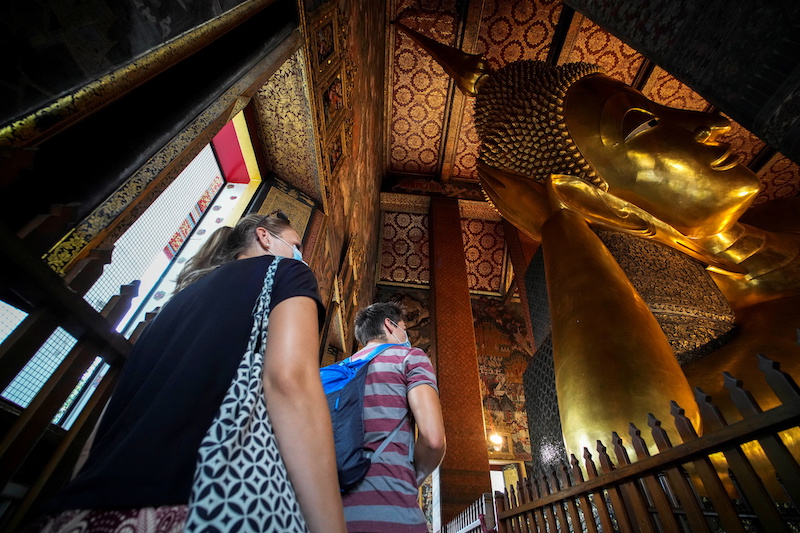China’s reluctance to open up international travel to its citizens, as fresh Covid outbreaks sweep across the country, has left a $255 billion annual spending hole in the global tourism market.
While many other Asian countries are gradually easing travel curbs, a move welcomed by the region’s hard-hit tourism operators, China, previously the world’s largest outbound tourism market, has kept international air capacity at just 2% of pre-pandemic levels.
Beijing is sticking to its zero tolerance policy for Covid-19 and has yet to relax tight travel restrictions and this has created a huge annual spending gap in the world’s tourism market for operators such as Thailand’s Laguna Phuket to try and fill.
Also on AF: Beijing Closes Roads, Playgrounds Amid Smog After Coal Spike
Managing director Ravi Chandran says Laguna Phuket’s five resorts have shifted their marketing focus to Europe, the United States and United Arab Emirates to make up for the loss of Chinese visitors, who accounted for 25%-30% of its pre-Covid business.
“Up to today, we have not done significant marketing or promotion in China… because we don’t feel anything coming our way,” Chandran said.
The pandemic has cost Thailand an estimated $50 billion a year in tourism revenue and Chinese were above-average spenders based on tourism ministry data. Thailand hopes to receive 180,000 foreign tourists this year, a fraction of around 40 million it received in 2019, as it opened places beyond Phuket to tourists on Monday.
Many experts expect China to keep its stringent measures, such as up to a three-week quarantine for those returning home, in place until at least the second quarter of next year – and possibly then only open gradually on a country-by-country basis.
“Destinations have to identify new source markets and learn how to market and cater to different cultures,” Pacific Asia Travel Association (PATA) Chief Executive Liz Ortiguera said, citing the Maldives as a rare example of a successful pivot during the pandemic.
The string of islands in the Indian Ocean promoted itself heavily at trade shows and attracted more Russian and Indian visitors to its luxury resorts and sparkling waters.
Airlines Re-evaluating Routes
China had been its greatest source of tourists before the pandemic but the Maldives saw overall arrivals in the first nine months of 2021 fall just 12% versus the same period of 2019.
“When we realised that Chinese travellers weren’t coming to the Maldives any time soon, we switched our focus to other key markets including Russia,” said a spokesperson for COMO Hotels and Resorts, which has two Maldives resorts.
Travel data firm ForwardKeys estimates it will take until 2025 for Chinese outbound travel to recover to pre-pandemic levels. That will also force airlines to re-evaluate their routes given its data shows 38% of Chinese tourists took foreign carriers in 2019.
Even as Singapore, Thailand and Indonesia’s Bali gradually open up for international travellers, Thai Airways and Garuda Indonesia are drastically shrinking their fleets as part of restructuring plans amid the absence of Chinese tourists.
When China does open its borders, industry surveys show a reluctance by many to travel internationally due to Covid fears.
There has also been a boom in domestic holidays to Hainan Island which now offers duty free shopping in a threat to future visits to nearby destinations such as Hong Kong and South Korea.
- Reuters with additional editing by Sean O’Meara
Read more:
Hong Kong Could Reopen to China by February, Says Lam
Beijing’s Winter Covid Warning Sparks Rush To Stock Up
























